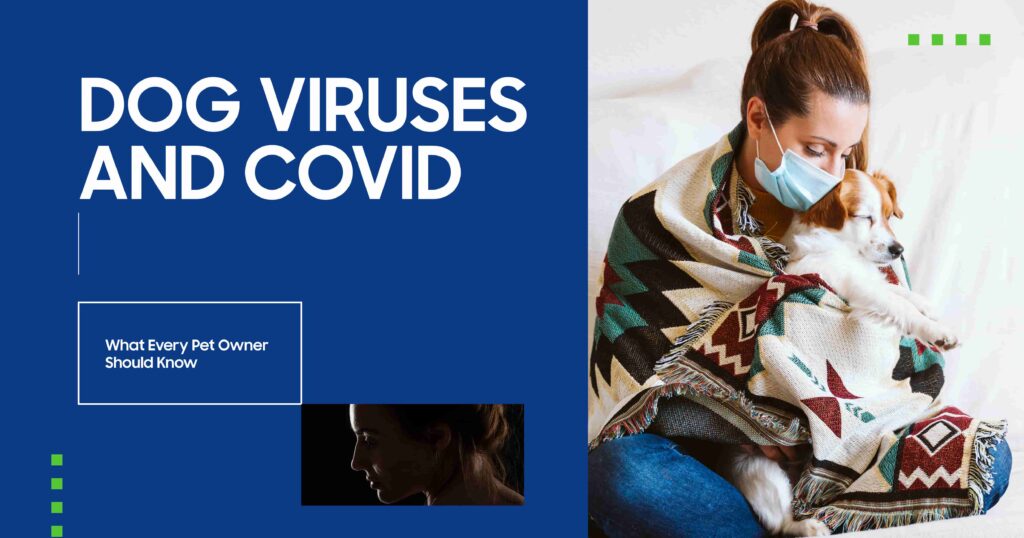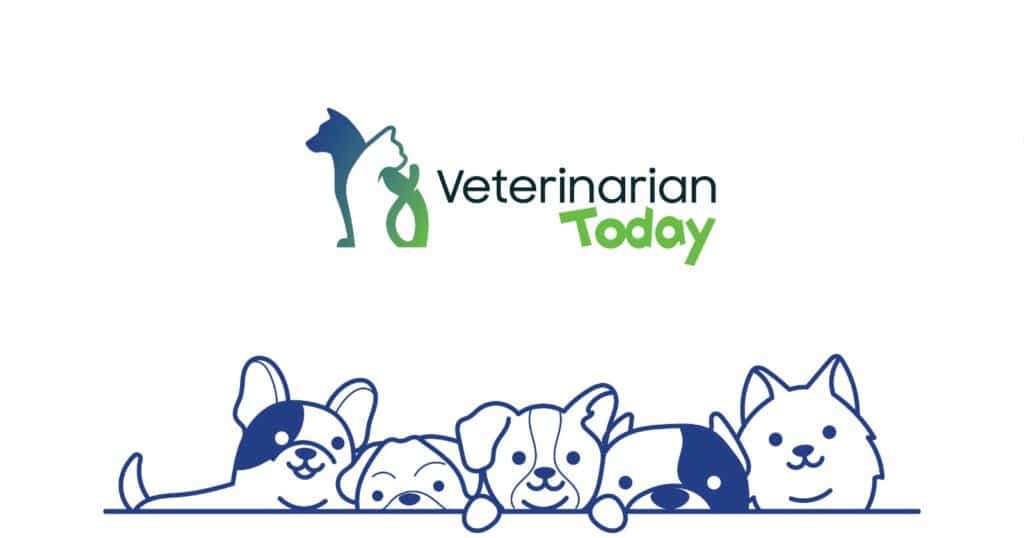As a pet owner, your dog’s health is always a priority. When COVID-19 emerged, many pet parents wondered if dogs could get COVID. While the virus primarily affects humans, there have been rare cases of dogs testing positive. The good news is that most infected dogs experience only mild symptoms, if any at all.
However, dogs are still susceptible to other viruses that can cause serious health problems. If you ever think, “My dog is sick,” it’s essential to understand whether the cause is COVID or another dog illness. This guide will help you recognize the signs your dog is sick, distinguish between COVID and other canine diseases, and take the necessary steps to protect your furry companion.
COVID in Dogs: What We Know So Far
Since the outbreak of COVID-19, researchers have been studying whether pets can contract and spread the virus. While documented cases of COVID-19 in dogs exist, the number remains low, and the infections have been mild. Most dogs that tested positive lived close to an infected person, reinforcing that human-to-dog transmission is possible but uncommon.
Veterinary experts and organizations such as the CDC and WHO agree that dogs are not significant carriers of COVID-19 and do not contribute to the spread of the virus among humans. Unlike in people, the virus does not replicate efficiently in dogs, meaning that they are unlikely to become severely ill even if they become infected.
If your dog has been exposed to someone with COVID-19 and is showing symptoms such as coughing, sneezing, or mild fatigue, monitoring their condition is a good idea. However, in most cases, these symptoms will resolve independently without medical intervention.
Can Dogs Get COVID From Humans?
A significant concern for pet owners is whether their dog can catch COVID from them. While rare, studies have shown that dogs can become infected through prolonged, close contact with an infected human. The virus spreads primarily through respiratory droplets, so if an infected person frequently coughs or sneezes near their dog, there is a slight risk of transmission.
How the Virus Spreads Between Species
Though dogs can technically contract COVID-19, they are not ideal hosts for the virus. Infected dogs have a very low viral load, meaning they do not shed enough of the virus to infect humans or other pets. While human-to-dog transmission is possible, no evidence suggests that a dog can pass the virus back to a person.
The main concern remains human-to-human transmission, and standard hygiene practices such as washing hands before touching your pet and avoiding close contact while sick can help minimize risks. If you test positive for COVID-19, limiting interaction with your dog until you recover is a reasonable precaution, but the overall risk remains minimal.
Signs Your Dog May Have COVID
If your dog is sick, it’s natural to wonder whether COVID-19 could be the cause. The symptoms in dogs are usually mild and resemble those of other dog illnesses, making it difficult to diagnose without veterinary testing. Common symptoms include mild coughing, sneezing, nasal discharge, lethargy, and a temporary loss of appetite.
Dog Virus Vs. COVID: How to Tell the Difference
Since many other dog viruses can cause similar symptoms, it is essential to consider other possibilities. Canine influenza, kennel cough, and respiratory infections can lead to coughing, sneezing, and fatigue. In more serious cases, illnesses such as distemper or parvovirus can cause high fevers and gastrointestinal distress.
If your dog is showing mild respiratory symptoms, COVID-19 could be possible, but it is more likely to be a different dog virus requiring supportive care. If your dog develops a persistent cough, difficulty breathing, or extreme lethargy, seeking veterinary advice is essential.
Dog Virus Going Around: Other Illnesses to Watch For
While COVID is not a major threat to dogs, several dog viruses can cause serious health complications. Canine influenza, or dog flu, is a highly contagious respiratory disease that spreads among dogs in kennels, parks, and daycare facilities. It presents with symptoms similar to human flu, including coughing, fever, and nasal discharge.
Kennel cough is another common respiratory illness that causes a persistent, dry cough, often sounding like a honking noise. This condition is especially prevalent in dogs around large groups of other animals, such as in boarding facilities or shelters.
Canine parvovirus is one of the most dangerous dog illnesses, particularly in puppies. It leads to severe vomiting, diarrhea, and dehydration and can be fatal if not treated promptly. Distemper is another severe viral disease that affects the respiratory, digestive, and nervous systems, leading to symptoms such as fever, coughing, neurological issues, and skin lesions.
Recognizing the signs your dog is sick early and taking immediate action can make all the difference in your pet’s recovery.
Dog Vomiting Treatment at Home: What You Can Do
If your dog is experiencing vomiting, it can be a sign of a mild stomach upset or a more serious dog illness. Minor cases of vomiting may be due to dietary indiscretion, where a dog eats something they shouldn’t have. However, if vomiting is persistent, it could indicate an underlying viral or bacterial infection.
When treating vomiting at home, withholding food for 12–24 hours can help give your dog’s digestive system a chance to settle. Offering small amounts of water frequently will prevent dehydration. After fasting, bland, easily digestible foods such as boiled chicken and rice can help ease stomach irritation.
If vomiting continues for more than a day and is accompanied by diarrhea, lethargy, or signs of pain, a trip to the veterinarian is necessary. Persistent vomiting can lead to dehydration and may be a symptom of a more serious illness that requires medical attention.
How to Protect Your Dog From Viruses
Preventing dog sickness is always better than treating it. Ensuring that your dog is up to date on vaccinations is one of the most effective ways to protect them from serious dog viruses like canine influenza, parvovirus, and distemper. Keeping your dog’s environment clean, providing high-quality nutrition, and avoiding exposure to sick animals can also help reduce the risk of infection.
If your dog interacts with other pets frequently, whether at a park, daycare, or kennel, monitoring them for any changes in behavior or health is essential. Early symptom detection allows quicker intervention, reducing the chances of severe illness.
When to Contact a Vet for Dog Illnesses
Determining when a dog’s symptoms require veterinary attention can be complex. Mild symptoms such as sneezing or a temporary loss of appetite may not be a cause for concern. Still, immediate veterinary care is necessary if your dog exhibits prolonged lethargy, vomiting, diarrhea, or difficulty breathing. Understanding the signs your dog is sick and responding accordingly can prevent minor illnesses from escalating into severe conditions.
Concerned About Your Dog’s Health? Vet Today Can Help
If you’re worried about your dog’s health and suspect they may have a dog virus, don’t wait to seek professional advice. Early diagnosis and treatment are crucial, whether a mild dog sickness or a more serious condition.
If your dog is sick and you’re unsure what to do next, schedule a vet appointment through Vet Today immediately. Taking proactive steps ensures your furry friend remains happy, healthy, and protected from potential illnesses.
FAQs
What happens if a dog gets COVID?
Most dogs experience mild symptoms like sneezing, coughing, or fatigue, while some show no symptoms. Severe cases are rare, and most dogs recover without medical treatment. If symptoms worsen, consult a vet.
How do I test my dog for COVID?
COVID-19 testing for dogs is available but rarely needed. Vets usually rule out other dog illnesses first. If you suspect COVID exposure and your dog is sick, talk to your vet about testing options.
Can my dog get sick from me?
Yes, though it’s uncommon. Dogs can contract COVID-19 through close contact with infected humans but are unlikely to spread it. Limit contact and practice good hygiene to protect your pet if you’re sick.
Are there treatments for COVID in dogs?
There’s no specific treatment, but supportive care helps. Ensure rest, hydration, and a nutritious diet. If your dog is sick,, Most recover independently, but seek veterinary care if symptoms persist.
What other viruses can affect dogs?
Dogs are vulnerable to serious dog viruses like parvovirus, distemper, and kennel cough. These can cause severe symptoms, unlike mild COVID cases. Watch for signs your dog is sick and keep up with vaccinations.






